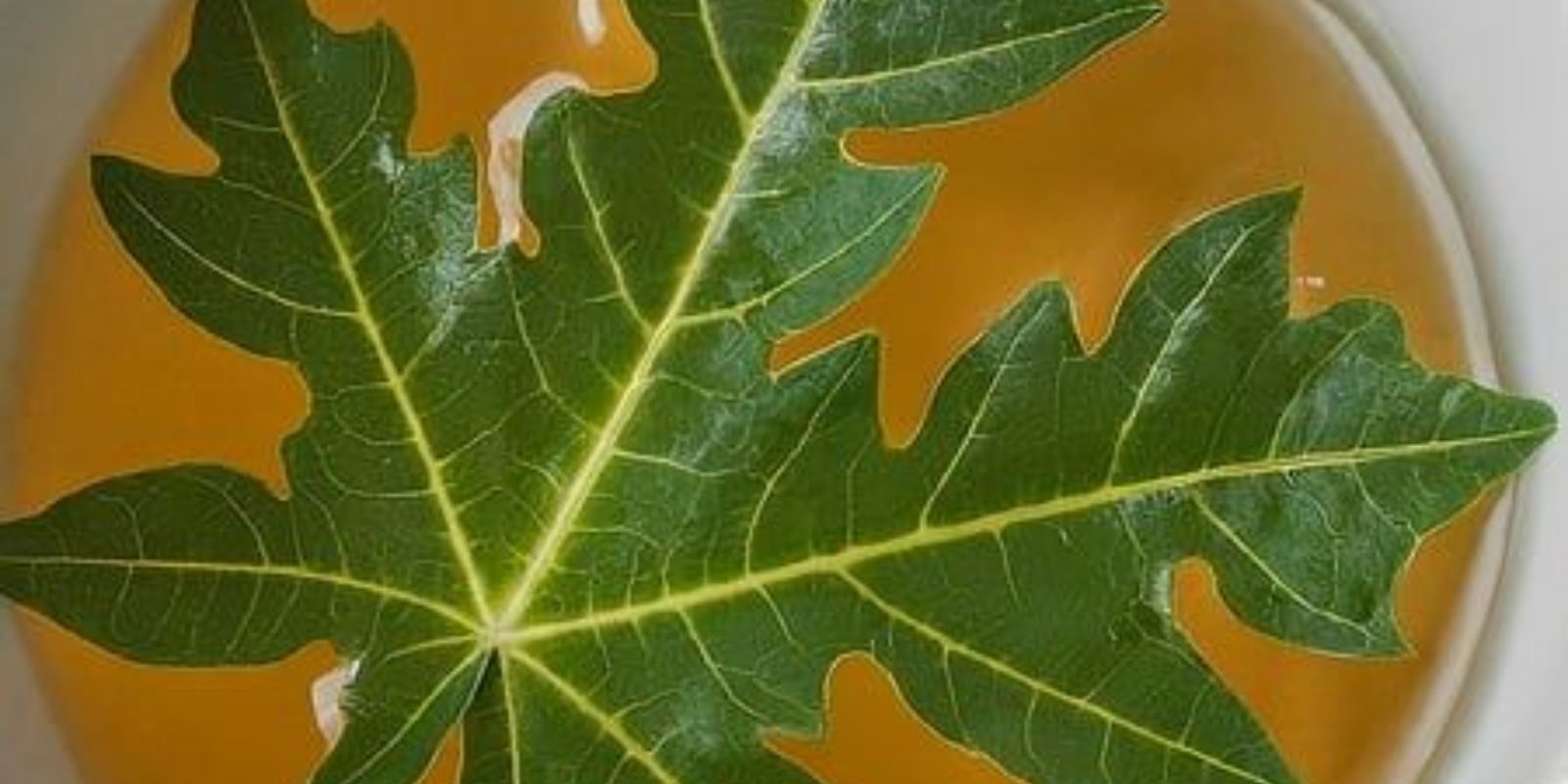Papayas are cherished for their delicious, tropical fruit, but the leaves of this versatile plant often go unnoticed. While many people enjoy the sweet, juicy flesh of the papaya, they might not realize that the leaves also hold remarkable health benefits and culinary uses. This article delves into the nutritional value, health benefits, and practical uses of papaya leaves, highlighting why they deserve a place in your diet and wellness routine.
Nutritional Profile of Papaya Leaves
Papaya leaves are nutrient-dense, offering a variety of vitamins and minerals essential for maintaining good health. Here’s a closer look at what makes these leaves so valuable:
- Vitamins: Papaya leaves are rich in vitamins A, C, and E. Vitamin A is crucial for maintaining healthy vision and immune function, while vitamin C is a powerful antioxidant that supports immune health and skin integrity. Vitamin E, another antioxidant, helps protect cells from damage.
- Minerals: These leaves contain significant amounts of potassium, calcium, and magnesium. Potassium helps regulate blood pressure and fluid balance, calcium supports bone health, and magnesium plays a role in muscle and nerve function.
- Antioxidants: Papaya leaves are packed with antioxidants such as flavonoids, phenolics, and carotenoids. These compounds help neutralize free radicals in the body, reducing oxidative stress and inflammation.
Health Benefits of Papaya Leaves
The health benefits of papaya leaves are vast, making them a valuable addition to your diet. Here’s a detailed look at how they can improve your well-being:
- Digestive Health: One of the most well-known benefits of papaya leaves is their digestive aid properties. They contain an enzyme called papain, which helps break down proteins and improves digestion. Papain can alleviate symptoms of bloating, constipation, and indigestion. The leaves can be consumed as a tea or in powdered form to support digestive health.
- Immune Support: Papaya leaves are believed to boost the immune system. They contain compounds like flavonoids and alkaloids that may enhance the body’s ability to fight off infections. Regular consumption of papaya leaf tea or supplements might help strengthen your immune response.
- Anti-Inflammatory Properties: The anti-inflammatory compounds in papaya leaves can help reduce inflammation in the body. This is beneficial for managing chronic inflammatory conditions such as arthritis or inflammatory bowel disease. Drinking papaya leaf tea or applying papaya leaf extracts topically can provide relief from inflammation.
- Potential Anti-Cancer Effects: Some studies suggest that papaya leaves may have anti-cancer properties. The leaves contain compounds that might inhibit the growth of cancer cells and induce apoptosis (cell death) in cancerous cells. While more research is needed, the preliminary findings are promising.
- Blood Health: Papaya leaves have been traditionally used to improve blood health. They may help increase platelet count, which is beneficial for individuals with low platelet levels due to conditions such as dengue fever. The leaves can be consumed as a juice or tea to support healthy blood function.
- Skin Health: The antioxidants in papaya leaves can benefit skin health by reducing oxidative stress and promoting a youthful appearance. Papaya leaf extracts are used in some skincare products for their anti-aging and skin-rejuvenating properties.
How to Use Papaya Leaves
Incorporating papaya leaves into your routine can be straightforward and versatile. Here are some popular methods:
- Papaya Leaf Tea: One of the easiest ways to consume papaya leaves is by brewing them into a tea. To make papaya leaf tea, steep a few fresh or dried leaves in hot water for 10-15 minutes. Strain and drink the tea daily to enjoy its digestive and immune-boosting benefits.
- Papaya Leaf Juice: Fresh papaya leaves can be juiced to make a nutritious drink. Blend the leaves with water and strain the mixture to obtain a refreshing, health-boosting juice. This can be consumed in small quantities as part of a balanced diet.
- Papaya Leaf Extracts: Papaya leaf extracts are available in supplement form, such as capsules or powders. These are convenient options for those who prefer a more concentrated dose of the leaf’s beneficial compounds.
- Topical Applications: For skin health, papaya leaf extracts can be applied topically. Look for skincare products containing papaya leaf extract or make your own mask by blending the leaves and applying the paste to your skin.
Precautions and Considerations
While papaya leaves offer many health benefits, there are a few precautions to keep in mind:
- Allergies: Some individuals may be allergic to papaya or its leaves. If you experience any allergic reactions such as itching, swelling, or difficulty breathing, discontinue use and consult a healthcare professional.
- Interactions with Medications: Papaya leaves can interact with certain medications, such as blood thinners or diabetes medications. If you are on medication or have a chronic health condition, consult your doctor before incorporating papaya leaves into your diet.
- Pregnancy and Breastfeeding: The safety of papaya leaves during pregnancy and breastfeeding has not been well studied. Pregnant or breastfeeding women should exercise caution and consult a healthcare provider before using papaya leaves.
Conclusion
Papaya leaves are a powerful, often overlooked, component of the papaya plant. Their rich nutritional profile and numerous health benefits make them a valuable addition to your wellness routine. From improving digestion and boosting the immune system to supporting skin health and potentially fighting inflammation, papaya leaves offer a range of benefits that can enhance your overall well-being.
Whether you choose to enjoy them as a tea, juice, or in supplement form, integrating papaya leaves into your diet can provide significant health advantages. Have you explored the benefits of papaya leaves? Share your experiences or ask questions below! Let’s celebrate the versatile papaya and unlock the full potential of its leaves together.

